JournalismPakistan.com | Published March 08, 2017
Join our WhatsApp channel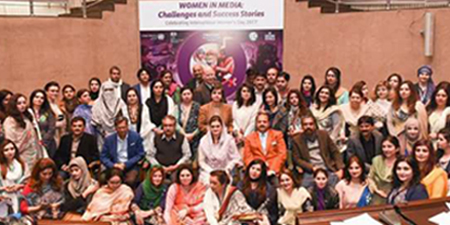
KARACHI - Pakistan Press Foundation (PPF) has called on the country’s media to seriously examine the safety of female staff members within their organizations and implement measures to provide a safe working environment that would encourage women to enter the profession in greater numbers.
In a statement issued on the International Women Day, PPF lamented that females are a dismal five percent of the workforce in Pakistani media compared to over 25 percent for the Asia Pacific region. Women are even rarer in corporate and editorial boards, or in positions of authority such as editors, bureau chiefs, director news, chief reporters, etc.
On television, female anchors and talk show hosts are relegated to the ‘soft’ morning shows and very few women are given the opportunity to host prime time current affairs programs. Gender balance is also missing in unions and press clubs, although some do reserve one seat for female members.
Pakistan is amongst the most dangerous countries in the world for journalists and it is difficult for media personnel to work in a secure atmosphere. Additionally, female media practitioners also face sexual harassment, threats, and violence from both within the profession itself as well as from society at large.
PPF said intimidation and sexual harassment of females in workplaces is a serious barrier to the entry of women in Pakistani media. According to a research on Pakistani media by the International Federation of Journalists (IFJ), one in five females has personally experienced sexual harassment at the workplace. Three out of every four women who had been sexually harassed simply did not report the incidents because of absent or ineffective grievance redressal mechanisms and fear of reprisals or social stigma. Sexual predators especially target the most vulnerable female staff members and it is necessary for their employers to provide a safe and secure working environment for all female employees.
The safety challenges faced by women employees in media organizations in Pakistan cover a range of physical, mental and emotional threats, intimidation and attempts to tarnish the reputation of the victim. These acts include inappropriate sexual advances, touching or groping, standing inappropriately close to female colleagues, staring and ogling. Other common forms of sexual harassment include spreading of innuendos, inappropriate comments, obscene conversations and jokes, obscene SMS messages and phone calls.
Perpetrators try to tarnish the reputation the females who complain sexual harassment and raise questions about their moral character. Victims of sexual harassment often do not find support from their colleagues, bosses or even other women colleagues who do not want to create tension in the office.
In Pakistan, the tarnishing of reputation and moral character can have very serious consequences for women and this makes them more vulnerable to hate spread over the digital media. This promotes self-censorship and there have been several instances of hate campaigns forcing female journalists to withdraw from using social media, such as Facebook and Twitter, or to stop commenting on sensitive issues.
More than a quarter women journalists in Pakistan have experienced threats online, via email and social media. These threats include threats of murder and violence, declarations of apostasy, accusations of treason, sexually explicit messages and images, invitations for sex, humiliating, vulgar and insulting messages.
Despite the seriousness and pervasiveness of threat, most journalists, including female journalists, are not aware of safe digital practices or how to make use of the existing mechanisms to report threats and hate campaigns.
The apathy of Pakistani media in dealing with gender discrimination and harassment is evident from the fact that only a handful of media houses comply with even the minimum legal requirement of setting up in-house inquiry committees to investigate complaints of sexual harassment. Under the Protection of Women against Harassment at Workplace Act 2010, all organizations in Pakistan are legally required to set up these in-house committees.
Pakistan Press Foundation (PPF) has called on media organizations including Pakistan Federal Union of Journalists (PFUJ), Council of Pakistan Newspaper Editors (CPNE), All Pakistan Newspaper Society (APNS) and Pakistan Broadcasters Association (PBA) to encourage and facilitate their members to ensure the creation of the committees which would promote the sense of security for their female staff members and encourage other women to enter the profession. Media organizations should also facilitate implementation of Code of Conduct at the Workplace against Sexual Harassment by all print, electronic and online media outlets. - PPF

June 11, 2025: Pakistan celebrated a narrow win over Bangladesh, but beneath the jubilation lies a deeper crisis—from sidelined veterans to a collapsing domestic structure—signaling an urgent need for cricket reform.
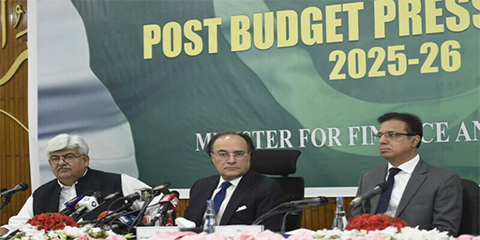
June 11, 2025: Journalists walked out of the post-budget press conference in Islamabad to protest the absence of a technical briefing and the government's dismissive behavior, calling it unacceptable and intolerable.

May 31, 2025: Dr. Nauman Niaz has issued a defamation notice to Shoaib Akhtar over derogatory remarks made during a recent broadcast, reigniting a longstanding media feud between the two prominent figures in Pakistan.

May 30, 2025: The Human Rights Commission of Pakistan has demanded the full repeal of PECA, citing its vague language, coercive powers, and threats to free speech and digital rights in Pakistan.
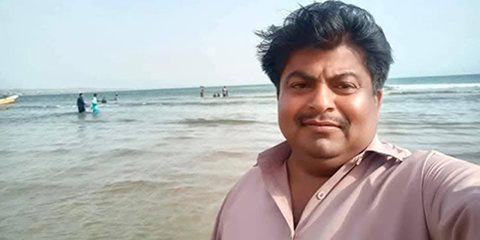
May 30, 2025: The Pakistan Federal Union of Journalists (PFUJ) has condemned the murder of journalist Syed Mohammed Shah in Jacobabad, calling for urgent justice and improved safety for media professionals in Sindh.

May 26, 2025: In Rawalpindi, police allegedly side with Jang Group to block 66 reinstated employees from resuming work despite court orders, drawing sharp criticism from unions and press freedom advocates.

May 25, 2025: PFUJ condemns the Jang Group's decision to dismiss over 80 employees in Rawalpindi, calling it an 'economic massacre.' The union warns of nationwide protests if workers are not reinstated.
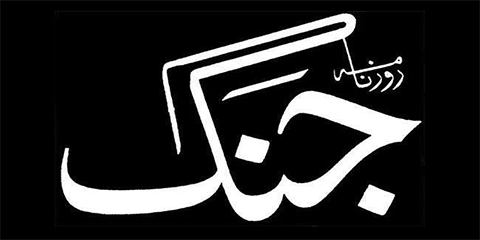
May 25, 2025: Daily Jang Rawalpindi has terminated over 80 employees, including female staff, despite multiple court rulings in their favor—raising concerns over labor rights violations and misuse of authority in Pakistani media.
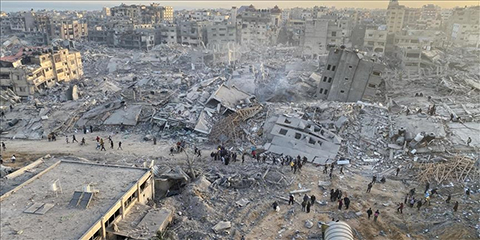
May 19, 2025 PJS reports 219 Palestinian journalists killed in Israeli attacks since October 7, with 30 women among the victims. Over 430 were injured and 685 family members were killed. Read more on the systematic targeting of media in Gaza.

May 15, 2025 Discover the legacy of Samiullah Khan, Pakistan’s legendary "Flying Horse," whose breathtaking speed and artistry redefined hockey. From Olympic glory to World Cup triumphs, his story is one of myth, movement, and magic.
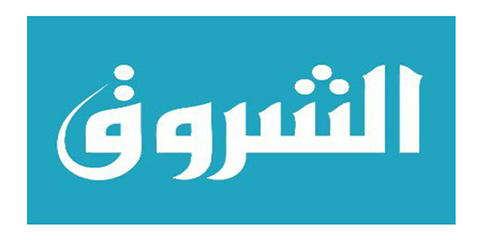
May 04, 2025 Algerian authorities suspend Echorouk News TV for 10 days after it used a racist slur against African migrants. ANIRA demands an apology, calling it a violation of human dignity.

May 04, 2025 NCHR and MMfD launch a journalism fellowship to train reporters on digital rights & gender inclusion in Pakistan. Supported by UNESCO, this initiative aims to bridge the gender digital divide. Apply by May 15, 2025!
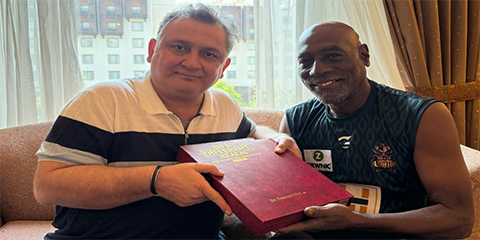
April 23, 2025 Discover Dr. Nauman Niaz’s In A Different Realm: Story of Quadruple & Triple Centuries 1876–2025, a profound exploration of cricket's most monumental innings, blending historical analysis with poetic narrative.